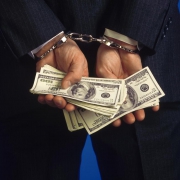Week That Was in Ethical Systems, 3/16/14-3/23/14
The Most Ethical Companies In The World, in Business Insider
The Ethisphere Institute has released its eighth annual list of the World’s Most Ethical Companies. A total of 144 companies were selected, representing 41 industries in 22 countries. Ethisphere’s scoring methodology incorporates (1) ethics and compliance programs; (2) reputation, leadership, and innovation; (3) governance; (4) corporate citizenship and responsibility; and (5) culture of ethics. “Placement on this list helps companies attract and retain key stakeholders such as employees and customers,” says Tim Erblich, CEO of the Ethisphere Institute. “This in turn helps companies drive growth and performance, especially as they expand into new markets around the world.” The final list, which includes 21 newcomers, is not a ranking. All selected companies are equally winners.
Something In The Air? Business Edges Towards Embracing Accountability (And Ethics), in Forbes
The Bank of England announced that it is strengthening proposals for bonus clawbacks in cases of bad behavior. These are the conditions it laid down for such a clawback: (1) there is reasonable evidence of employee misbehavior or material error; (2) the firm or the relevant business unit suffers a material downturn in its financial performance; or (3) the firm or the relevant business unit suffers a material failure of risk management. It also encouraged firms to consider applying clawback when an employee could reasonably have been expected to be aware of failure or misconduct but did not take steps to address it. Given the perils of pure pay-for-performance, we are encouraged by BOE’s approach, which connects bonuses with ethical conduct and accountability to the whole team.
The Moral Responsibility of Firms: A Legal View, in INSEAD Knowledge
Eric W. Orts, Guardsmark Professor at the Wharton School in the Legal Studies and Business Ethics Department, writes about the rights and responsibilities of firms as persons. Some moral responsibility must be conferred on business entities, he argues, as it may be impossible to reduce all of it to the individual level without creating unfair organizational incentives to find scapegoats in order to protect high-level decision makers. The differentiation of those responsibilities that are collective from those that are individual deserves serious attention and research.
Career Coach: Are you an ethical leader? in The Washington Post
Research has shown that the ethics of a workplace can be directly linked to bottom-line company performance. Joyce E. A. Russell, vice dean and director of the Executive Coaching and Leadership Development Program at the University of Maryland’s Robert H. Smith School of Business, explores what it means to be an ethical leader: be a role model of integrity, set ethical standards for the company, provide training, inspire trust, enhance workplace relationships, illustrate transparency, and ensure compliance with ethical standards. For our own examination of the relevant research, please see our Leadership page.

